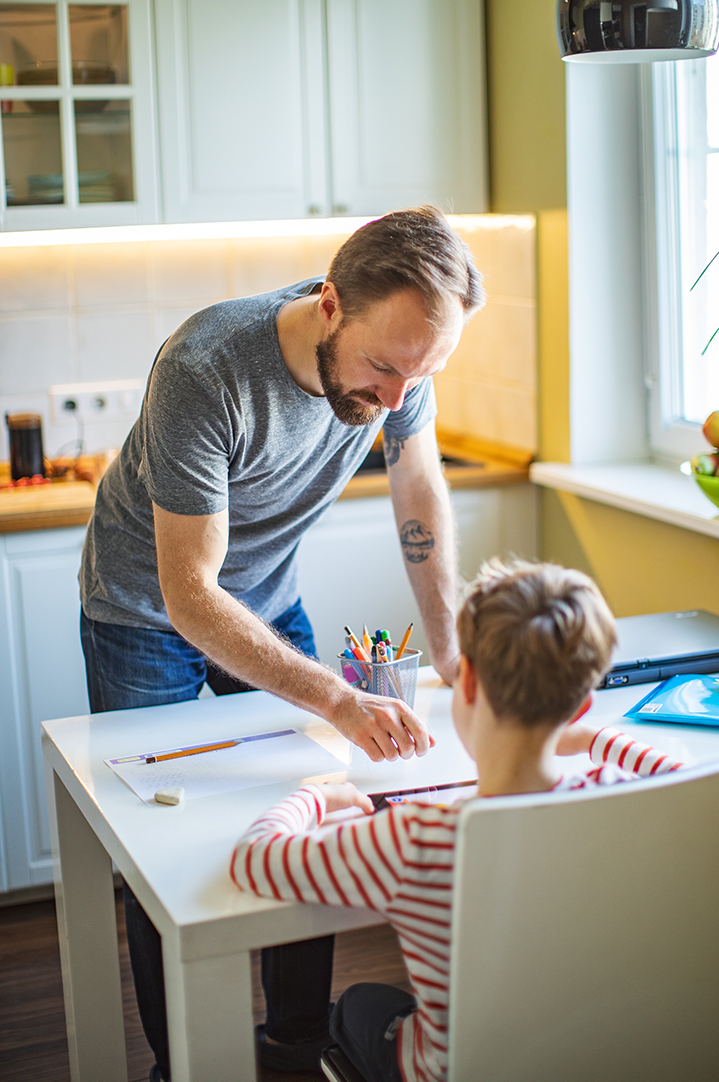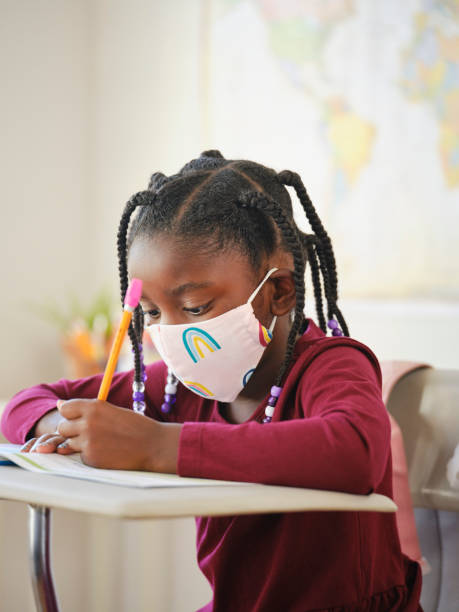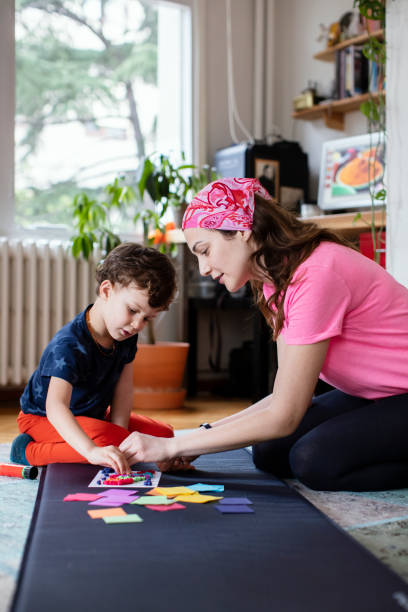Parenting in a Pandemic
by Ann Douglas
You are not alone. Parenting in the midst of a pandemic is challenging for everyone—and it’s even tougher if you’re the parent of a child who is struggling with mental illness. In addition to dealing with the challenges that all parents have been dealing with, you’ve been forced to deal with some added challenges—and so has your child. The first step in the process of starting to make things better for yourself and your child is to allow yourself to fully acknowledge the extent of the struggle and to give yourself permission to feel everything that you’re feeling—to accept as opposed to run from those feelings. Then, once you’ve had a chance to fully process all those emotions, you can switch into problem-solving mode and tap into your many strengths as a parent.

The challenges that all parents have been facing
The past few months have been an extremely challenging time to be a parent. Not only have we been dealing with ongoing worry and uncertainty: we’ve also been shouldering a massive load.
- We’ve had to scramble to make sense of rapidly evolving information about what is actually required to keep our families safe and then to figure out how to apply this information to our family’s individual situation.
- We’ve either had to adjust to new ways of working (either working remotely from home or in the community) or we may have had to make the difficult decision to leave the workforce entirely.
- We’ve had to figure out how to scramble to meet the needs of our children, our employers, and/or other family members while also supporting our children’s online learning.
- Some of us have been additionally burdened by the systemic inequities that have been heightened by the pandemic—inequities that merely serve to increase the health and financial burdens borne by our families.
What’s made the situation even tougher is the fact that many of our usual supports simply haven’t been available to us—or at least not in the usual way. Not only were schools closed and the majority of childcare centers shuttered for many months: we simultaneously lost access to other less formal supports, like the ability to turn to a friend or a neighbour for help in caring for a child. Bottom line? The need for physical distancing has left many of us feeling isolated and alone at the very time we needed human contact most.
TIP:
If you’ve been struggling in recent months, it’s important to know that it’s not just you. This has been an exceptionally difficult time for pretty much every parent we know. It’s not that you’re doing anything wrong. In fact, odds are you’ve been doing a lot of really important things right. Don’t forget to give yourself credit for that.

The additional challenges that families like ours have been facing
Being the parent of a child who is struggling with a mental illness is challenging at the best of times—and what we’ve been living through in recent months is anything but the best of times. In addition to dealing with the challenges that all parents have been dealing with during this strange and uncertain time, we’ve also been grappling with many additional challenges related to our children’s mental illness—and so have our kids.
- We’ve been dealing with the loss of the reassuring rhythm of everyday life. So many of our day-to-day activities and routines have been upended. While this is disconcerting for everyone, it can be downright debilitating for our kids. Many children who struggle with mental illness have a difficult time coping with changes to their usual routine and, in recent months, those changes have been massive and unrelenting.
- We’ve struggled with isolation and loneliness as the need for physical distancing has made it difficult for us and our children to get together with people we care about and to access our usual supports, including the clinical and school-based mental health supports that our children count on to stay well.
- We’ve been concerned about changes to our children’s behaviour. Some of our kids have become more withdrawn or sad; others have become more anxious or agitated; and still others have experienced changes to their eating habits, sleeping patterns, or physical activity levels.
- We’ve been experienced feelings of exhaustion and guilt. This is a time when kids need more support from parents, not less—and yet we’re being stretched in even more directions than usual. There simply isn’t enough of us to go around, despite our best efforts to be there for everyone who needs us.
The additional challenges that families like ours have been facing
Being the parent of a child who is struggling with a mental illness is challenging at the best of times—and what we’ve been living through in recent months is anything but the best of times. In addition to dealing with the challenges that all parents have been dealing with during this strange and uncertain time, we’ve also been grappling with many additional challenges related to our children’s mental illness—and so have our kids.
- We’ve been dealing with the loss of the reassuring rhythm of everyday life. So many of our day-to-day activities and routines have been upended. While this is disconcerting for everyone, it can be downright debilitating for our kids. Many children who struggle with mental illness have a difficult time coping with changes to their usual routine and, in recent months, those changes have been massive and unrelenting.
- We’ve struggled with isolation and loneliness as the need for physical distancing has made it difficult for us and our children to get together with people we care about and to access our usual supports, including the clinical and school-based mental health supports that our children count on to stay well.
- We’ve been concerned about changes to our children’s behaviour. Some of our kids have become more withdrawn or sad; others have become more anxious or agitated; and still others have experienced changes to their eating habits, sleeping patterns, or physical activity levels.
- We’ve been experienced feelings of exhaustion and guilt. This is a time when kids need more support from parents, not less—and yet we’re being stretched in even more directions than usual. There simply isn’t enough of us to go around, despite our best efforts to be there for everyone who needs us.

“Our son has always struggled with severe anxiety and school avoidance. We were so thrilled last fall to see our son enter his first year of high school and to thrive socially and academically in that environment. And then COVID-19 happened. For a teen whose mental illness thrives on isolation and lack of interaction, this was the worst possible scenario.”

Celebrating your many strengths as a parent
This isn’t the first time you’ve had to deal with a situation that is strange, uncertain, and constantly changing. As the parent of a child with a mental illness, this is familiar territory for you.
The good news is that you can tap into some of the strengths you’ve developed as a result of making it through those earlier times of struggle.
You might find it helpful to ask yourself the following questions and to reflect on what you learn from your answers:
- What are your greatest strengths as a parent?
- What coping strategies have proven most helpful to you in managing earlier times of struggle?
- How might you tap into those strengths and work some of those strategies right now?
TIP:
Wondering what mental health supports are available to you and your child right now? We’re here to help.
Look for tips, resources and information to help parents and caregivers.
Survival Guide
Practical tips and information to prioritize your own wellness and start making things better for you and your family.
School Tips for Parents
Strategies for making a strange and uncertain situation feel a little less overwhelming for you and your kids.
You Don’t Have to Do This Alone.
If you are a parent/caregiver worried about your child, or a young person looking for help yourself – please reach out. Our network of child and youth mental health centres has 4,000 professionals ready to help children, youth and families with free counselling and treatment. We provide care in person, on the phone and virtually. No problem is too big or small.
Find your closest child and youth mental health centre.
